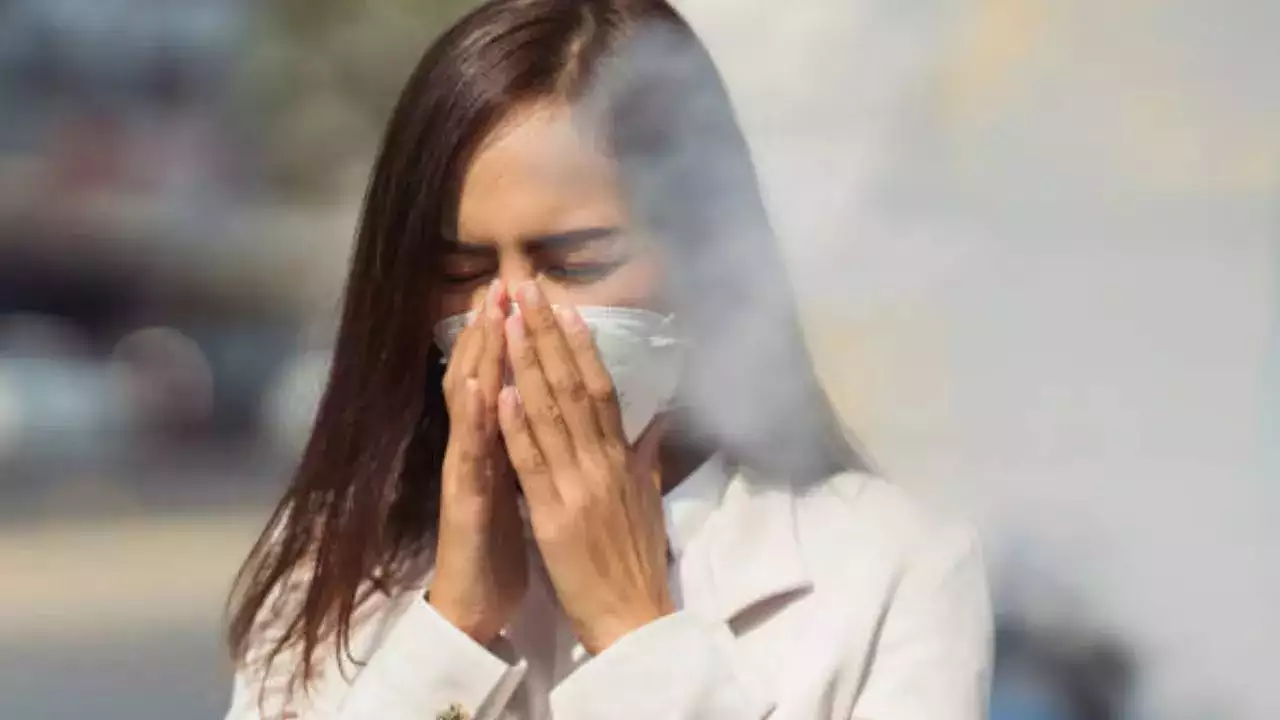
Can Breathing Toxic Air Lead To Poor Vision? Experts Weigh In On Myopia Risks (Image Credits: iStock)
Air pollution in Delhi is not only increasing respiratory problems in residents of Delhi-NCR but also raising risk of chronic eye problems including dry eyes, cataracts, retinal damage and even myopia or nearsightedness. Myopia, or nearsightedness, is a common vision condition where close objects appear clear, but distant ones are blurry. This occurs due to improper focusing of light in the eye, caused by the shape of the eye or its components. Pollutants like sulfur dioxide (SO2), nitrogen dioxide (NO2), and particulate matter (PM) have been linked to chronic eye conditions, including dry eye syndrome, cataracts, and retinal damage.
We got in touch with Dr Ankush Mutreja Ophthalmologist, MS - Ophthalmology, MBBS, Hospital- Eye 4 U who explains that air pollution might also aggravate the development of myopia. Pollutants can induce oxidative stress and inflammation in the eyes, potentially altering their anatomy and disrupting retinal function. These changes may hinder normal regulatory mechanisms responsible for controlling eye growth, leading to nearsightedness.
How People Living In Metropolitan Cities Are More At Risk Of Myopia?
Dr Mutreja explains that people residing in highly polluted areas are less likely to spend time outdoors, depriving their eyes of natural light. Sunlight plays a critical role in stimulating dopamine production in the retina, a neurotransmitter that regulates eye growth. Insufficient dopamine levels can cause the eyeball to elongate abnormally, leading to myopia.
Dr Mutreja shares, “Poor air quality, combined with limited outdoor exposure, creates a double burden on eye health, especially in urban populations. Oxidative stress from pollutants and a lack of natural light are significant contributors to worsening myopia.”
Protecting Eye Health Amid Pollution
While improving air quality may seem next impossible, Dr Mutreja shares some steps you can take to protect your vision:
Improve Indoor Air Quality
- Use an air purifier with a HEPA filter to reduce indoor pollutants like dust, smoke, and particulate matter.
- Keep windows closed during high-pollution days to minimize exposure to outdoor air.
Shield Your Eyes
- Wear sunglasses with UV protection to guard against harmful rays and pollutants. Sunglasses not only shield your eyes from sunlight but also reduce exposure to airborne irritants.
Maintain a Healthy Diet
- Consume a diet rich in antioxidants, such as vitamins A, C, and E. These nutrients combat oxidative stress caused by pollution and support overall eye health.
Prioritize Outdoor Activities
- Engage in outdoor activities during early mornings or when air quality is better. Exposure to natural light can stimulate dopamine production and support healthy eye growth.
Get Latest News Live on Times Now along with Breaking News and Top Headlines from Health and around the world.